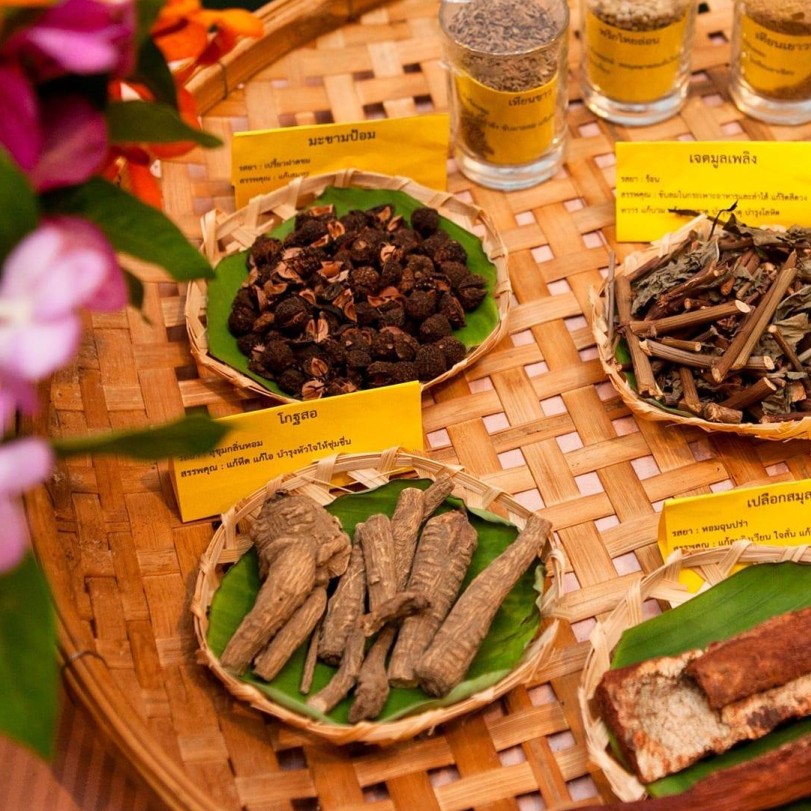Thai Traditional Medicine’s Nine Tastes
Each plant, herb, or animal product utilized in Thai Traditional Medicine is classified into 9 flavors with distinct qualities. Even if you are unfamiliar with the plant, tasting it can help you grasp some of its qualities. The nine tastes are as follows:
1. Astringent
This category encompasses tastes that leave a coating on the tongue, akin to the sensation experienced when consuming green bananas. Plants with this flavor contribute to the treatment of wounds, diarrhea, and skin infections. However, they should be avoided in cases of coughing and constipation.

2. Sweet
Sweet-tasting plants are known for their ability to nourish and hydrate the skin, stimulate appetite, and alleviate fatigue and cough. Conversely, they are not advisable if you suffer from tooth decay, excessive phlegm, vomiting, diabetes, contaminated lymph fluid, or wounds.
3. Nauseating
Plants characterized by a nauseating taste, such as cannabis and numerous anti-cancer herbs, function as antidotes to various poisons, including blood toxins and insect stings. They effectively combat illnesses tied to the Water element, parasites, and rashes. However, they are contraindicated for individuals dealing with heart disease and cough.
4. Bitter
Bitter plants are beneficial in treating conditions linked to blood, bile, and fever. They aid in nourishing bile, enhancing appetite, and facilitating digestion. However, they are not recommended for individuals with heart disease, ailments associated with the Wind element, or bloating.
5. Hot and Spicy
Plants with a hot and spicy nature, including ginger, galangal, and black pepper, help eliminate gas and reduce bloating. They ignite the fire element within the body, stimulate perspiration, and bolster the digestive process. It’s important to be aware that these should be refrained from when you are suffering from a fever or experiencing delirium.
6. Fatty and Rich
Fatty and rich foods offer substantial benefits for ligaments, tendons, marrow, and bone tissues. They also alleviate muscular pains and provide warmth. However, they are not suitable if you are dealing with coughing, wheezing, dysentery, fever, or dehydration.
7. Fragrant and Cooling
Fragrant and cooling flowers, spices, and herbs bring benefits to the heart, liver, lungs, and even the developing fetus in the womb. They rejuvenate energy levels and quench thirst. However, it’s important to be cautious if you have Wind element-related ailments such as bloating.
8. Salty
Salty herbs are effective in addressing skin problems, constipation, and thick, sticky phlegm. They contribute to the cleansing of the lymphatic fluid, intestines, and blood. But they should be avoided in cases of dysentery and stomach ulcers.
9. Sour
Sour-tasting plants and fruits are remedies for phlegm issues, coughing, and constipation. They also play a role in purifying the blood and alleviating thirst. However, they may not be suitable for individuals dealing with lymphatic problems, diarrhea, or fever.
Additionally, alongside the nine tastes, there is the bland taste. Bland-tasting plants, like most grasses, act as diuretics and can help alleviate fever, inflammation, and phlegm-related problems. Notably, bland herbs do not come with any contraindications.


